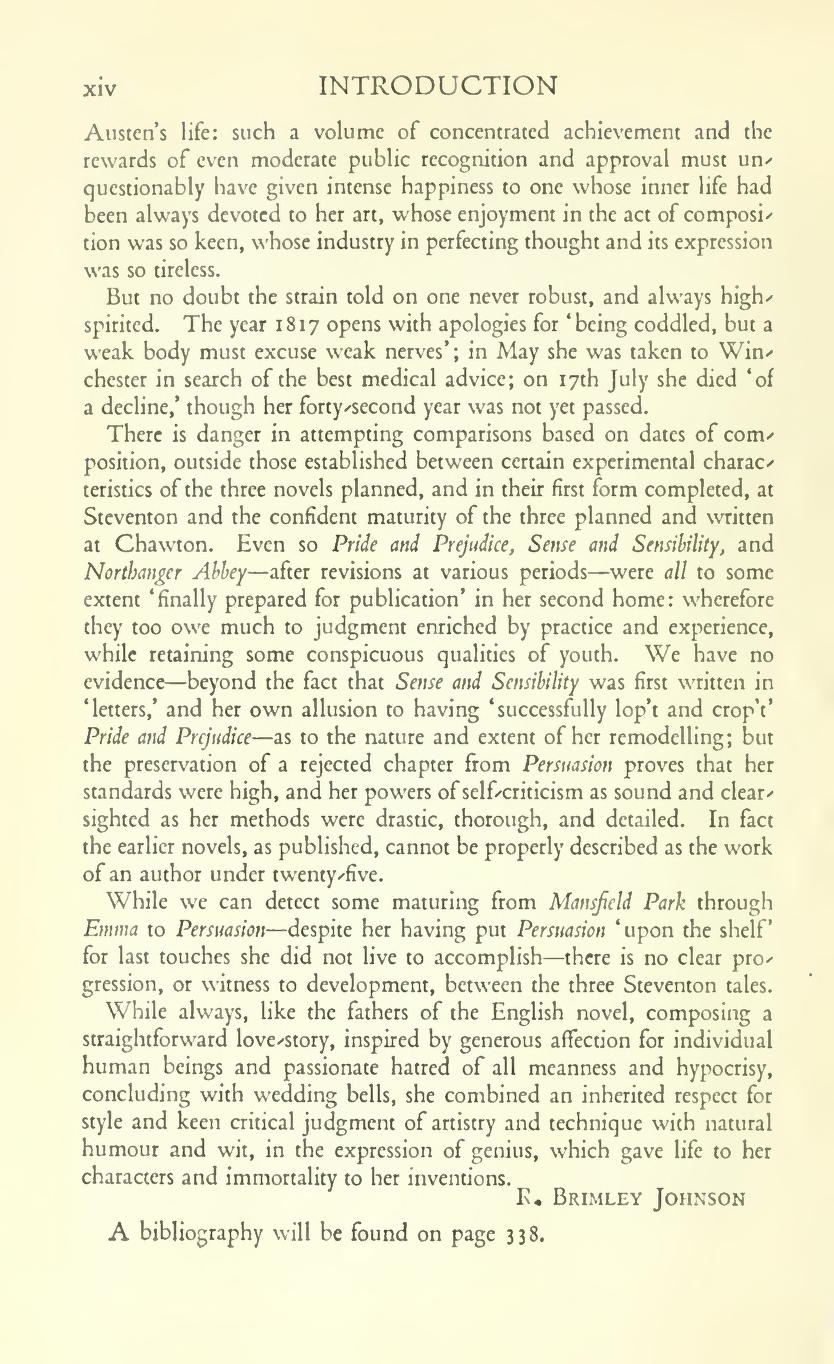 ............prev.....................next
............prev.....................next{{prxprf014.jpg}} || xiv INTRODUCTION
Austen's life: such a volume of concentrated achievement and the
rewards of even moderate public recognition and approval must un^
questionably have given intense happiness to one whose inner life had
been always devoted to her art, whose enjoyment in the act of composi/
tion was so keen, whose industry in perfecting thought and its expression
was so tireless.
But no doubt the strain told on one never robust, and always higlv
spirited. The year 1817 opens with apologies for 'being coddled, but a
weak body must excuse weak nerves'; in May she was taken to Win'
chester in search of the best medical advice; on 17th July she died 'of
a decline,' though her fortysecond year was not yet passed.
There is danger in attempting comparisons based on dates of conv
position, outside those established between certain experimental charac
teristics of the three novels planned, and in their first form completed, at
Steventon and the confident maturity of the three planned and written
at Chawton. Even so Pride and Prejudice, Sense and Sensibility, and
Nortbangcr Abbey -- after revisions at various periods -- were all to some
extent 'finally prepared for publication' in her second home: wherefore
they too owe much to judgment enriched by practice and experience,
while retaining some conspicuous qualities of youth. We have no
evidence -- beyond the fact that Sense and Sensibility was first written in
'letters,' and her own allusion to having 'successfully lop't and crop't'
Pride and Prejudice -- as to the nature and extent of her remodelling; but
the preservation of a rejected chapter from Persuasion proves that her
standards were high, and her powers of self-criticism as sound and clear--
sighted as her methods were drastic, thorough, and detailed. In fact
the earlier novels, as published, cannot be properly described as the work
of an author under twenty^five.
While we can detect some maturing from Matisfeld Park through
Emma to Persuasion -- despite her having put Persuasion 'upon the shelf
for last touches she did not live to accomplish -- there is no clear pre
gression, or witness to development, between the three Steventon tales.
While always, like the fathers of the English novel, composing a
straightforward love-story, inspired by generous affection for individual
human beings and passionate hatred of all meanness and hypocrisy,
concluding with wedding bells, she combined an inherited respect for
style and keen critical judgment of artistry and technique with natural
humour and wit, in the expression of genius, which gave life to her
characters and immortality to her inventions.
K. Brimley Johnson
A bibliography will be found on page 338.
[[xiv]]